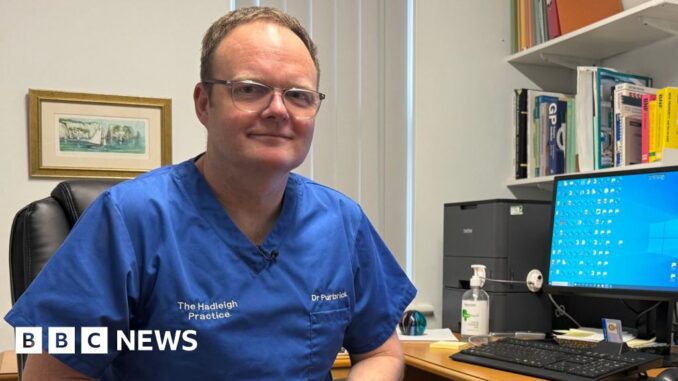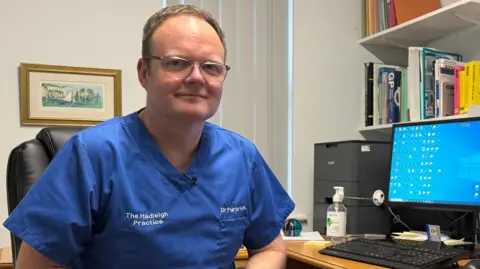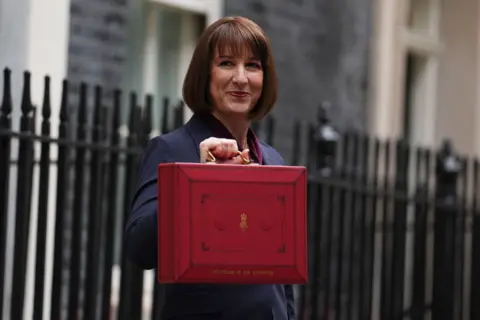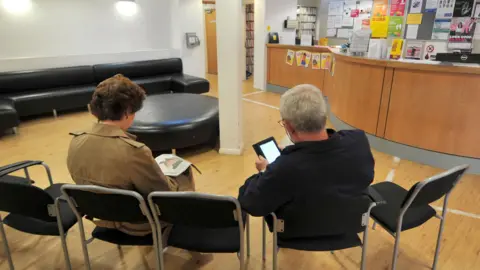
 BBC
BBCGP practices could be pushed “over the edge” by a planned rise in the National Insurance (NI) rate for employers, a doctor has said.
The government has said the NHS and the rest of the public sector would be shielded from the rise but that does not cover GP practices, many of which are run as small businesses.
Dr Andrew Purbrick, who represents 300 GP practices across the south of England, said many would be forced to cut back on staffing or close.
“We would describe general practice as being on the precipice and, for a significant number of practices, this could push them over the edge,” he said.
 PA Media
PA MediaChanges announced in the Budget mean that, from next April, employers would have to pay NI at 15% on salaries above £5,000, instead of the current 13.8% on salaries above £9,100.
GP practices receive their funding through contracts with the NHS.
Dr Purbrick is joint chief executive of the Wessex Local Medical Committees (WLMC), which covers Hampshire, Isle of Wight, Dorset, Wiltshire and Somerset.
He said the current core funding amounted to £112.50 per patient annually and did not cover costs.
The tax rises were a “hammer blow to already fragile practice finances”, said the GP, adding: “It feels like a kick in the teeth when you are already really down.”
The Institute of General Practice Management, which represents GP practice managers, has estimated the rise will put up the tax bill of the average sized surgery by around £20,000 a year, with planned increases to the minimum wage adding another £10,000 on average to wage costs.
 PA Media
PA Media‘Difficult decisions’
Dr Purbrick, who has been a GP in Poole for 24 years, said practices were independent businesses and could not afford to run at a deficit.
“We can’t pass on costs to customers like other private businesses,” he said. “Practices are going to have to make difficult decisions around recruitment and replacing staff, which will have an impact on patient access to see a GP.”
The WLMC wants the government to make GP practices exempt from the tax rises and to increase funding for primary care.
A government spokesperson said it had taken “tough decisions to fix the foundations” so that a £22bn boost for the NHS and social care could be announced in October’s Budget.
They said the rise would not kick in until April and that the government would set out further details on the allocation of funding for next year in due course.
The spokesperson added: “We will also hire an extra 1,000 GPs into the NHS by the end of this year, having already announced a contract uplift for GPs and practice staff, and we will ensure practices have the resources they need to offer patients the highest quality care.”



Be the first to comment